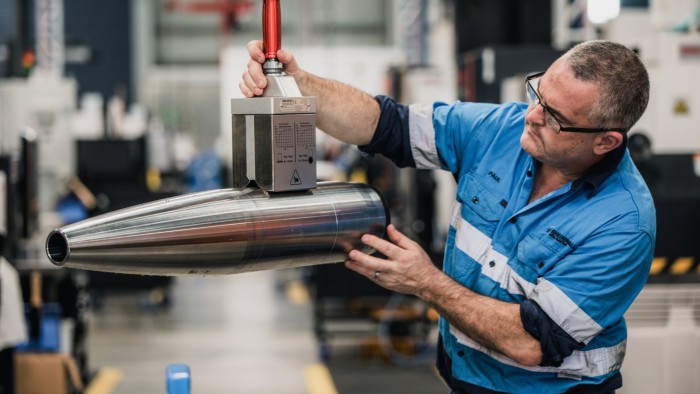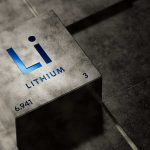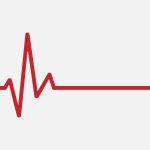Stay informed with free updates
Simply sign up to the Aerospace & Defence myFT Digest — delivered directly to your inbox.
Shares in European defence companies hit record highs on Monday, as investors bet that governments will have to shoulder more of the burden for the continent’s security by increasing military spending.
Rheinmetall was up 6 per cent in Frankfurt, BAE Systems rose 5 per cent in London and Thales climbed 3.8 per cent in Paris. The Stoxx Europe aerospace and defence index hit its highest level since at least the early 1990s.
The sector-wide bounce comes as European leaders gather in Paris to work out how to respond to US President Donald Trump’s decision to start talks with Russia’s Vladimir Putin on ending the war in Ukraine.
Defence stocks were being boosted by the prospect of European countries playing a role in a security solution for Ukraine, said analysts, as part of a broad increase in the region’s spending on defence.
It has been a “huge last few days” for European geopolitics and “maybe we’ll look back on them as a big catalyst to higher European defence spending,” said Jim Reid, a strategist at Deutsche Bank.
“There is seemingly more urgency now to increase defence spending and this is something European leaders seem to be coalescing around,” he added.
Since returning to the White House last month, Trump has ratcheted up the pressure on European allies to boost their defence spending beyond a Nato target of 2 per cent of GDP, floating 5 per cent as a new target — which at present only Poland is close to reaching.
Senior politicians across Europe have in recent days committed to spending more on defence. UK Prime Minister Sir Keir Starmer has offered to put British troops on the ground and has committed to setting out a “pathway” for the country’s defence spending to reach 2.5 per cent of GDP.
Speaking to Reuters on Friday, Rheinmetall’s chief executive Armin Papperger said the company would grow more than previously expected.
In an interview with the Financial Times this month, Papperger said: “It takes size to be able to play in the same league as the American arms companies . . . To meet the high demand in Europe, we need arms production on an industrial scale — this is also what politicians are calling for.”
Until Russia’s full-scale invasion of Ukraine almost three years ago, some investors had been wary of backing the defence sector due to ethical concerns.
Government bond yields rose as investors moved to price in freer defence spending. The benchmark German 10-year bond yield rose 0.07 percentage points to 2.49 per cent as the price of the debt fell.
Ten-year gilt yields rose 0.05 percentage points to 4.56 per cent.
“In terms of market implications, higher defence spending should lead to an upward pressure on European rates,” said Jefferies’ Mohit Kumar.
“Whichever way the peace process goes, it is clear that Europe will need to increase” spending on its defence, he added.
Read the full article here




